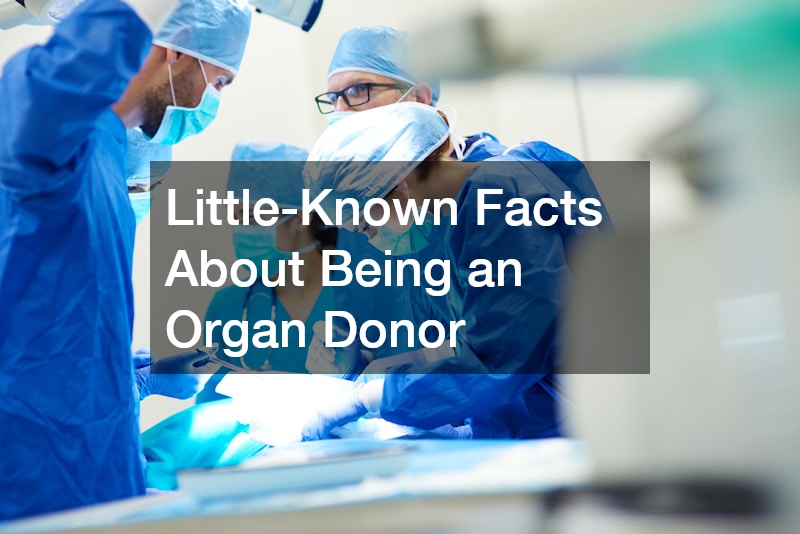Little-Known Facts About Being an Organ Donor
Becoming an organ donor is a powerful way to make a lasting difference in the lives of others. However, many people are unaware of some important and interesting facts about organ donation that go beyond the basics. Whether you’re already a registered donor or considering becoming one, understanding these lesser-known details can deepen your appreciation for the impact of this life-saving choice. Here are some little-known facts about being an organ donor.
1. Organ Donors Can Save Multiple Lives
Many people wonder, how many lives can an organ donor save? The answer may surprise you. A single organ donor can save up to eight lives by donating major organs such as the heart, kidneys, lungs, liver, pancreas, and intestines.
But the impact doesn’t stop there. Organ donors can also improve the quality of life for up to 75 others through tissue donations, including corneas, skin, heart valves, and bones. This incredible reach shows just how vital organ donation is to those awaiting transplants.
2. Age Isn’t a Limiting Factor
One common misconception about organ donation is that age plays a big role in eligibility. In reality, there’s no age limit for becoming an organ donor. People well into their 70s and 80s have successfully donated organs that saved lives. What matters most is the condition of the organs and tissues, not the donor’s age. Medical professionals will assess your organs at the time of donation to determine their suitability, so it’s never too late to sign up as a donor.
3. You Can Donate Even With Health Conditions

Another little-known fact is that you can still be an organ donor even if you have certain health conditions. Diseases like diabetes, high blood pressure, or hepatitis may affect some organs but leave others completely viable for donation. Doctors evaluate potential donors on a case-by-case basis to determine which organs and tissues are suitable. So even if you have an ongoing health issue, you may still be able to help those in need of a transplant.
4. Living Donations Are Possible
Most people associate organ donation with deceased donors, but living donations are also possible. For example, a healthy individual can donate one kidney or a portion of their liver while they’re still alive. Living donors play a critical role in reducing wait times for people in urgent need of transplants. So, not only can organ donors save lives after they’ve passed away, but they can also make a life-saving difference while still living.
5. Organ Donors Leave a Lasting Legacy
Beyond the life-saving impact, organ donation leaves a legacy of compassion and generosity. Many donor families take comfort in knowing their loved one’s organs helped others live. When people ask, how many lives can an organ donor save, it’s clear that the answer is far-reaching. Through both direct organ donations and tissue contributions, donors touch lives in ways that ripple far into the future.

